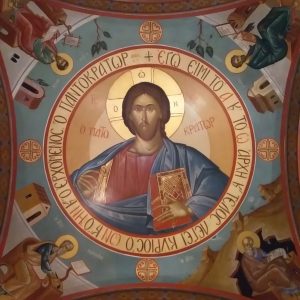Read through Psalm 8
In this psalm there is a grandiose picture of humankind that is contemplated by the psalmist. But this exalted picture of humans is only explicated in the context of God’s glory. We will be made glorious because He is glory. We will be made holy ones because He is the Holy One. The psalmist has a proper anthropology (talking rightly about humans) because he inserts it into a proper theology (talking rightly about God). The psalmist both opens and closes this psalm with the same confession: “LORD, our LORD, how majestic is your name in all the earth!” (vv.1, 9). The psalmist understands that in order to properly comprehend our place in the cosmos (the creation) we need to properly comprehend our place before God (the Creator).
After confessing God’s majesty, the psalmist talks about the magnificent nature of the heavens (“the moon and the stars”) and how God’s glory is “set” there (v.1b). The psalmist understood how beautiful and grand the world around him was and the stars in the heavens were without the convention of modern scientific discoveries. He didn’t need a telescope to know that the stars were “out of this world” amazing! He saw that which was around him and knew it was beautiful; it was truthful. And through this beauty all around Him he saw God’s fingerprint all over it (v.3).
Then the psalmist turns his gaze from “out there” toward himself – the nature of humankind. God’s glory is so great that its expression shines even through humans. Even though the creation all around the psalmist was so magnificent, he knew that humans were even more special and magnificent. He can see God’s face in the heavens above, and He can see God’s face in the face of his neighbor. That’s the image of God that gives all humans inherent dignity and it is this special image that makes us special in all of creation (Genesis 1.26-27). This is such a grand gesture of God to us that the psalmist can’t help but ask: “what is mankind that you are mindful of them, human beings that you care for them?” (v.4). What’s so special about me? Why does God look at me with such pleasure when there are stars and the moon to look at? I’m a sinner and I don’t deserve to be acknowledged. But that’s the glory of the gospel! That God does care so much about us that He gave His only Son to redeem, forgive, and transform us. Not only that, but creation itself (in all its marred beauty) is waiting in “eager expectation for the children of God to be revealed” (Romans 8.19). And why does Paul tell us the creation is waiting on us? Because “the creation itself will be liberated from its bondage to decay and brought into the freedom and glory of the children of God” (Romans 8.21). This is amazing to hear: though we are the climax of creation (Genesis 1.26-27) and we are made “a little lower than the angels” (Psalm 8.5), we are deliberately interrelated and interconnected to the rest of creation.
We see this “freedom and glory of the children of God” here in this psalm in verse 2, “Through the praise of children and infants you have established a stronghold against your enemies, to silence the foe and the avenger.” It is helpful to know that the original name of the Psalter was tehillim which means “praises.” The whole Psalter is meant to lead the people of God to praise the LORD (Psalm 150). Therefore, it is through our praises of God, because of His glory, that we find our “freedom and glory” and through this all of creation is redeemed. Our praises to God are the “stronghold” in this world against the enemy. Amen!
